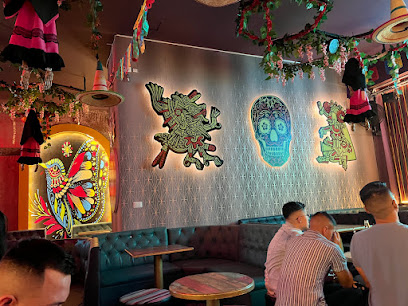
Crossing Borders: The Iconic Rumichaca International Bridge
Discover the breathtaking Rumichaca International Bridge, a stunning gateway between Colombia and Ecuador, surrounded by the beauty of the Andes.
The Rumichaca International Bridge is a stunning architectural feat that serves as the gateway between Colombia and Ecuador. Nestled in the picturesque landscapes of Ipiales, Narino, this bridge not only facilitates travel but also offers breathtaking views of the surrounding Andean mountains. As a popular tourist attraction, it invites visitors to experience the rich cultural exchange between the two nations. Whether crossing for commerce or leisure, tourists will find the bridge to be an unforgettable part of their journey.
A brief summary to Rumichaca International Bridge
- Ipiales, Narino, CO
Local tips
- Visit during the early morning or late afternoon for the best lighting and fewer crowds.
- Don't forget your camera; the views from the bridge are stunning and perfect for photography.
- Explore the local shops and eateries nearby to experience the vibrant culture and delicious cuisine.
- Be mindful of the weather; dress in layers as temperatures can vary in the mountains.
- Check the bridge’s operational hours before your visit to avoid any inconvenience.
Getting There
-
Car
If you're traveling by car from the town of Tulcán, head south on the E28 highway. Follow signs for the Rumichaca International Bridge, which is approximately a 30-minute drive. You will pass through beautiful mountainous landscapes. Be prepared to present your identification and vehicle documents at the border control points. There may be a small fee for crossing the bridge, depending on your vehicle type.
-
Public Transportation
From Tulcán, you can take a bus to Ipiales, Colombia. Buses frequently leave from the local terminal and the trip takes about 1 hour. Ensure you have your passport, as you will need it to cross the border at the Rumichaca International Bridge. The bus will drop you off at the border, where you will need to go through immigration. After clearing the immigration, you will walk across the bridge into Colombia. Be aware of local currency exchange rates if you plan to spend time in Ipiales.
Discover more about Rumichaca International Bridge
Iconic landmarks you can’t miss
Rumichaca International Bridge
0.0 km
Discover the breathtaking Rumichaca International Bridge, a stunning gateway between Colombia and Ecuador, surrounded by the beauty of the Andes.
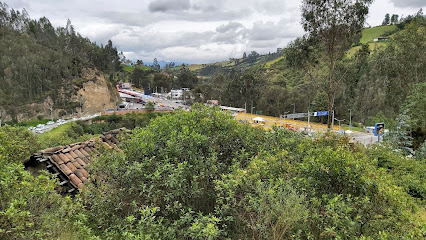
Antiguo Puente de Rumichaca
0.2 km
Explore the historical majesty of Antiguo Puente de Rumichaca, a bridge rich in culture and breathtaking views in Valle del Cauca, Colombia.
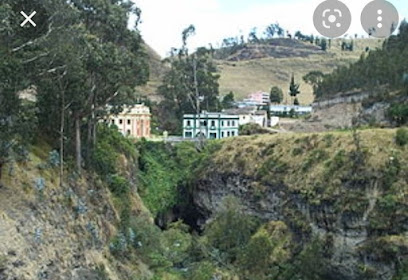
Parroquia de Urbina
1.6 km
Explore the serene beauty and cultural richness of Parroquia de Urbina, your gateway to Ecuador's stunning Andean landscapes and authentic traditions.
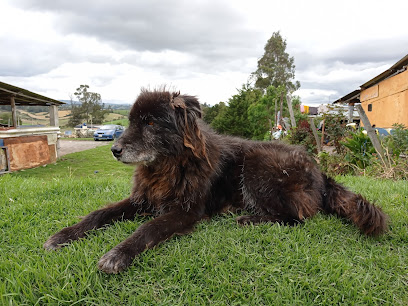
Catedral de San Pedro Mártir
3.5 km
Discover the enchanting beauty of Catedral de San Pedro Mártir, a stunning Gothic masterpiece in Ipiales, Colombia, rich in history and spiritual ambiance.
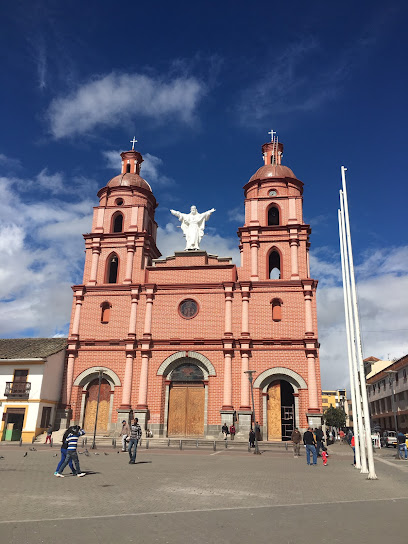
Gobernación del Carchi
5.9 km
Discover the Gobernación del Carchi in Tulcán, a gateway to understanding Ecuador's regional governance and vibrant local culture.

Carchi Prefectura
6.0 km
Explore the essence of Tulcán at Carchi Prefectura, where local governance meets vibrant culture and stunning nature.
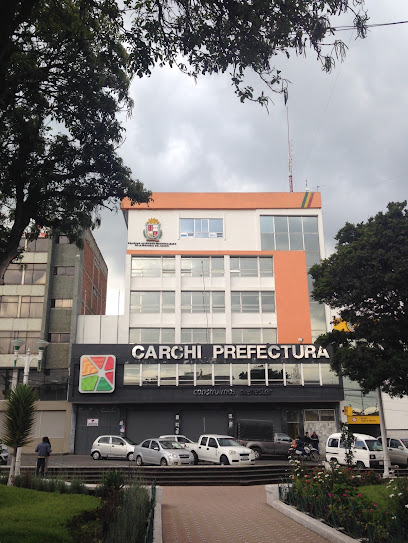
Catedral de Tulcán
6.0 km
Explore the architectural beauty and spiritual serenity of the Catedral de Tulcán, a must-visit landmark in Ecuador's vibrant cultural landscape.
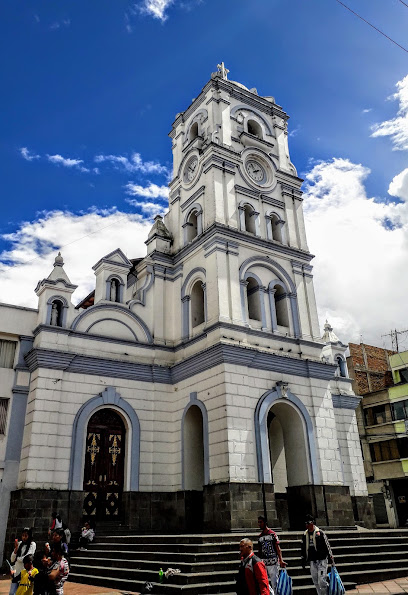
El Carmelo Ecuador
17.9 km
Explore El Carmelo, a serene Ecuadorian parish filled with natural beauty, rich culture, and warm hospitality for an unforgettable travel experience.
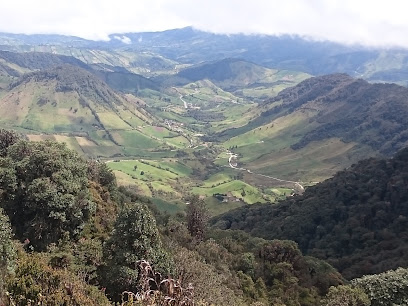
Resguardo Indígena Gran Tescual
19.1 km
Explore the agricultural wonders and cultural richness of Resguardo Indígena Gran Tescual, a hidden gem in Nariño, Colombia.

Quebrada San Luis "Territorio Ancestral de Muellamues"
24.5 km
Experience the tranquil beauty and rich cultural heritage of Quebrada San Luis in Cumbal, Narino, a hidden ancestral treasure in Colombia.
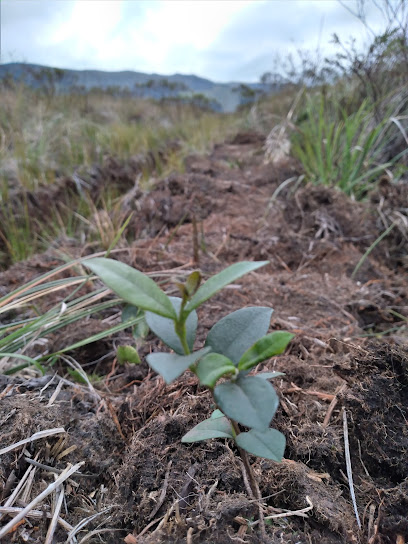
Cumbre Volcán Chiles
30.1 km
Discover the unparalleled beauty and adventure at Cumbre Volcán Chiles, a top hiking destination in Ecuador, perfect for nature lovers and thrill-seekers.
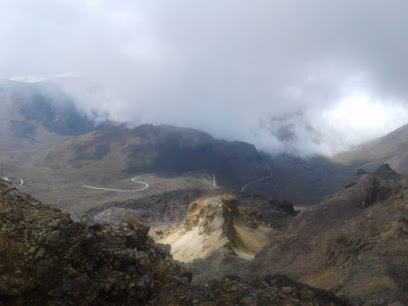
Ecoruta Cultural Frontera Norte
31.0 km
Experience the rich cultural heritage and stunning landscapes at Ecoruta Cultural Frontera Norte, a historical landmark in San Gabriel, Ecuador.
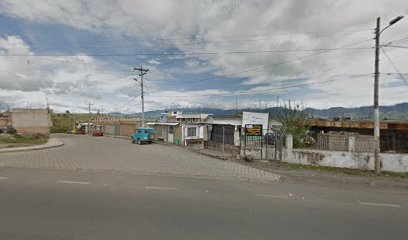
Casa de Piedra Glamping & Farm
31.3 km
Discover the enchanting beauty of Casa de Piedra Glamping & Farm, where luxury meets nature in the heart of El Angel, Ecuador.
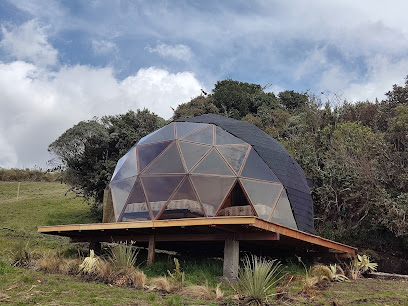
Estación Carchi
57.3 km
Discover the charm of Estación Carchi in La Concepcion, a guest house offering comfort, tranquility, and a gateway to Ecuador's stunning landscapes.
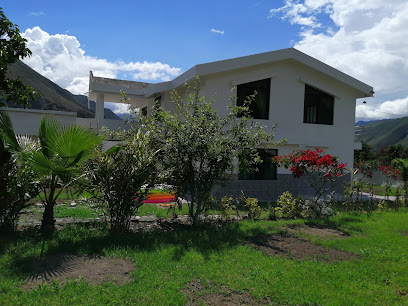
La Pastusidad
58.8 km
Explore the breathtaking landscapes and rich biodiversity of La Pastusidad, a national park paradise in Nariño, Colombia, perfect for nature lovers.
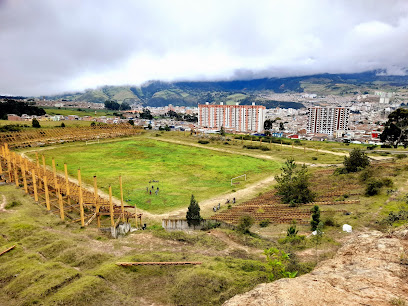
Unmissable attractions to see
Tulcan Cemetery
5.6 km
Explore the stunning topiary artistry of Tulcán Cemetery, a unique memorial park in Ecuador celebrating life through creative landscapes and serene beauty.
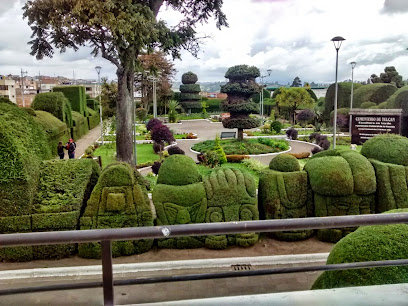
Tulcan ecuador
5.8 km
Explore the stunning hiking trails and picturesque landscapes of Tulcán, Ecuador, a must-visit destination for nature lovers.
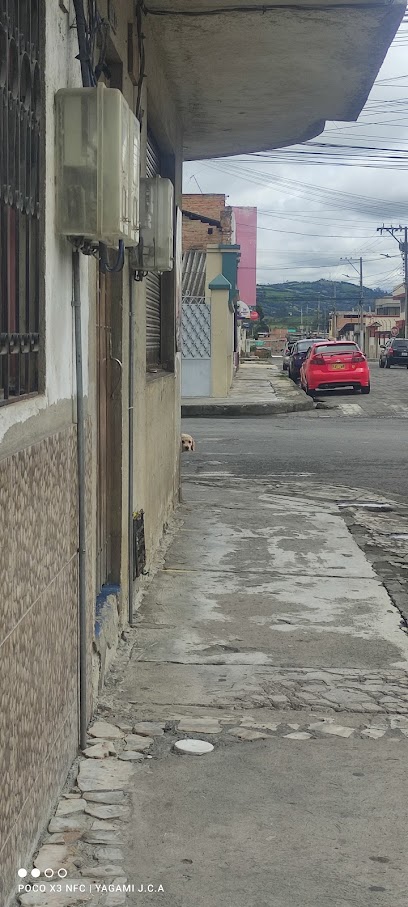
CASA DE LA CULTURA ECUATORIANA “BENJAMÍN CARRIÓN” NÚCLEO DEL CARCHI
5.9 km
Discover the rich cultural heritage of Ecuador at Casa de la Cultura Ecuatoriana ‘Benjamín Carrión’ in Tulcán, a museum showcasing art, history, and tradition.
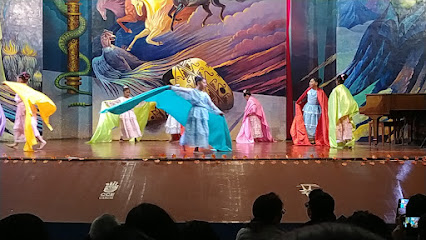
Sanctuary of Our Lady of the Holy Rosary of Las Lajas
8.7 km
An architectural masterpiece and pilgrimage site in a breathtaking canyon setting near the Colombia-Ecuador border. A testament to faith and human artistry.
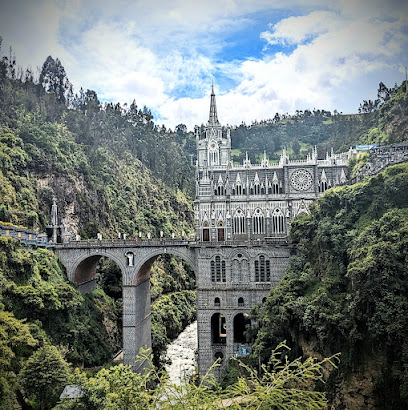
Bosque De Los Arrayanes Cuba
21.7 km
Discover the natural beauty and diverse wildlife at Bosque De Los Arrayanes in Cuba, an unforgettable nature escape for all travelers.
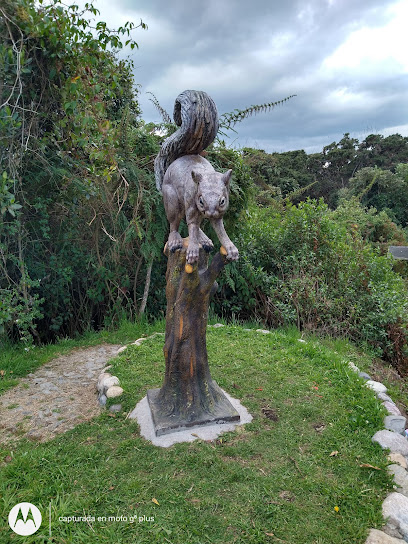
Complejo Ecoturístico Aguas Hediondas
26.7 km
Explore Complejo Ecoturístico Aguas Hediondas in Tulcán, a serene park known for its hot springs, lush landscapes, and rich cultural heritage.
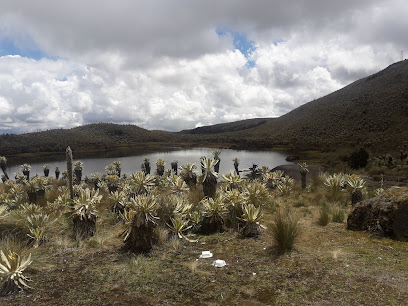
Laguna El Voladero
27.8 km
Experience the tranquil beauty and rich biodiversity of Laguna El Voladero in La Libertad, Ecuador - a serene nature preserve and tourist attraction.
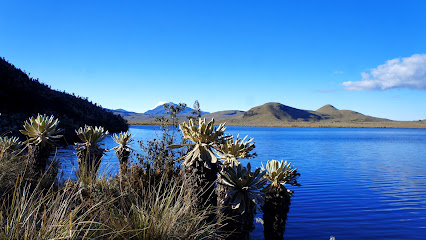
Lagunas Verdes del Volcán Chiles
29.4 km
Explore the breathtaking Lagunas Verdes del Volcán Chiles, a stunning natural landmark with emerald lagoons and rich biodiversity in Ecuador.
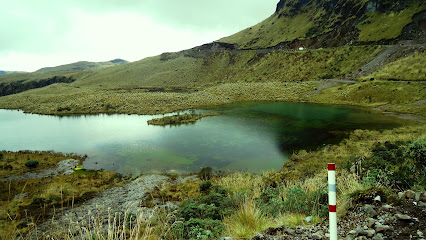
Cascada de Paluz
29.6 km
Experience the breathtaking beauty of Cascada de Paluz, a stunning waterfall in San Gabriel, Ecuador, ideal for nature lovers and adventure seekers alike.
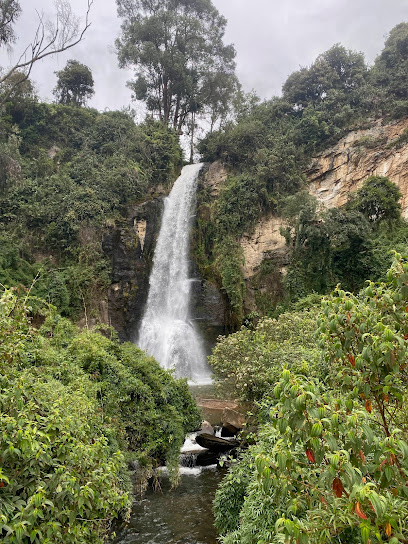
Bolivar Park Tuquerres
30.9 km
Experience tranquility in Túquerres' central park, a perfect spot for relaxation and a taste of local culture in Nariño, Colombia.
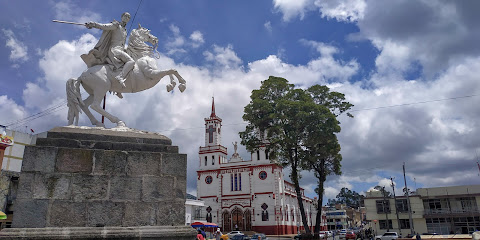
El morro
36.6 km
Discover El Morro in Guaitarilla, Colombia: A scenic natural landmark with stunning views and rich biodiversity in the heart of the Andes.
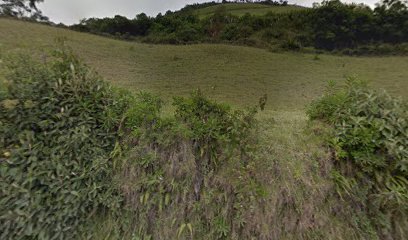
La Gruta de la Paz
40.1 km
Discover the spiritual essence and natural beauty of La Gruta de la Paz, a tranquil grotto in Ecuador perfect for reflection and exploration.
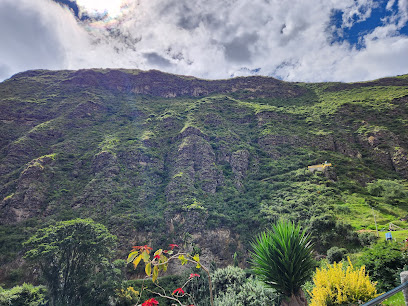
Paleontological Museum, Bolivar - Carchi
43.1 km
Explore the rich history of prehistoric life at the Paleontological Museum in Bolivar, a must-see for all science enthusiasts and curious travelers.
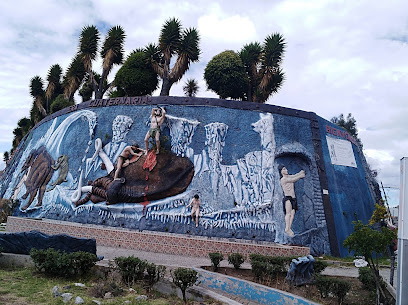
Galeras Nature Sanctuary
53.2 km
Discover Colombia's Galeras Nature Sanctuary: Hike volcanic landscapes, spot diverse wildlife, and explore unique ecosystems in this natural paradise.
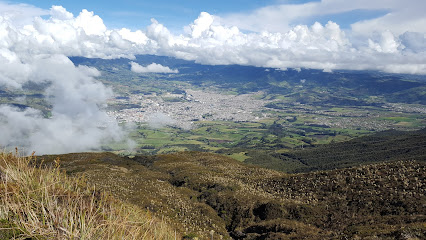
Chapalito Park
60.0 km
Escape to Pasto's Chapalito Park: A serene urban oasis with lush landscapes, playgrounds, art, and diverse birdlife, open daily for relaxation.
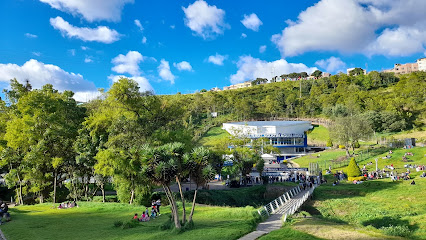
Essential places to dine
Restaurante La Merced
3.8 km
Discover exquisite Colombian flavors at Restaurante La Merced in Ipiales—an unforgettable dining experience awaits.

Restaurante Qhapac Ñan
4.4 km
Experience the rich flavors of Ecuador at Restaurante Qhapac Ñan, where authentic barbecue meets warm hospitality.
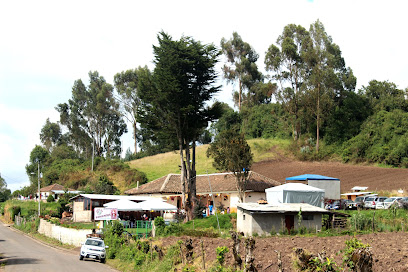
Parrilladas El Bosque
4.5 km
Discover authentic Ecuadorian flavors at Parrilladas El Bosque – where grilled meats meet vibrant atmosphere in Tulcán.
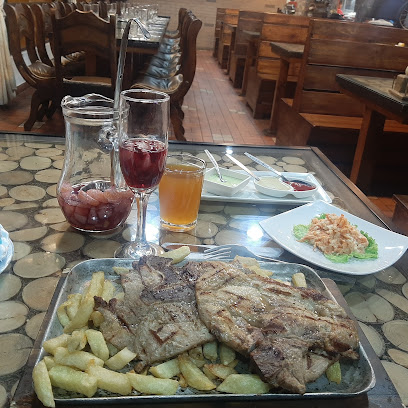
Santuario Restaurante y Café Artesanal
4.7 km
Experience authentic Colombian cuisine and artisanal coffee at Santuario Restaurante y Café Artesanal in Ipiales.

La Rioja Exclusive Restaurant & Bar
4.8 km
Experience culinary excellence at La Rioja Exclusive Restaurant & Bar in Tulcán – where local flavors meet international cuisine.
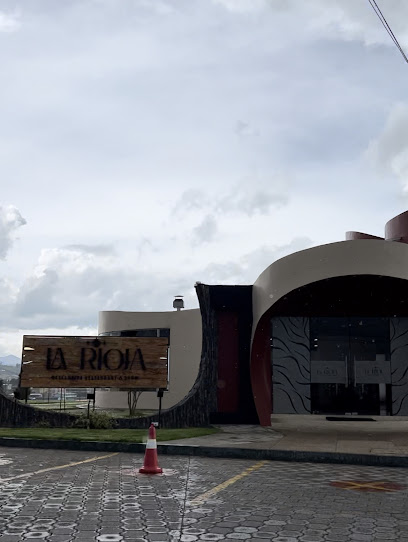
Mama Rosita
5.0 km
Experience authentic Ecuadorian cuisine at Mama Rosita in Tulcan, where every dish tells a story of tradition and flavor.

RESTAURANTE EL RANCHO
5.1 km
Experience authentic Ecuadorian cuisine at Restaurante El Rancho in Tulcán - where tradition meets flavor.
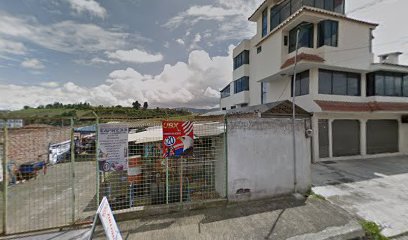
La Paradeta de Marta
5.2 km
Experience authentic Ecuadorian cuisine at La Paradeta de Marta in Tulcán - where every meal tells a story.
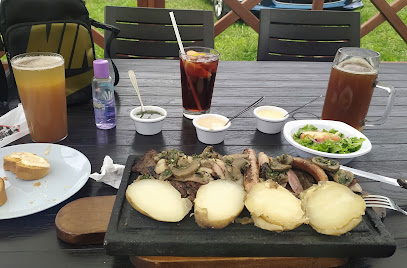
Tablitas El Coyote. Comidas a la Parrilla y Asados
5.2 km
Experience authentic Ecuadorian grilled meats at Tablitas El Coyote – a culinary gem in Tulcán known for its vibrant flavors and warm hospitality.
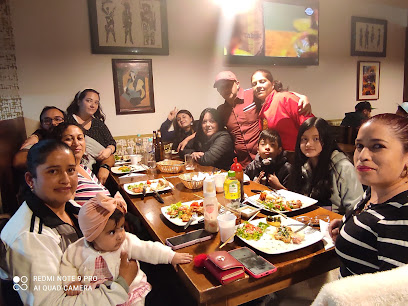
Chanul Restobar
5.3 km
Discover exquisite local cuisine at Chanul Restobar in Tulcán - where traditional flavors meet modern flair.
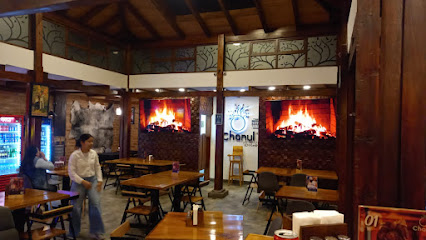
COMEDOR EL VECINO
5.7 km
Experience authentic Ecuadorian flavors at Comedor El Vecino in Tulcán – a culinary haven for every traveler seeking local delicacies.
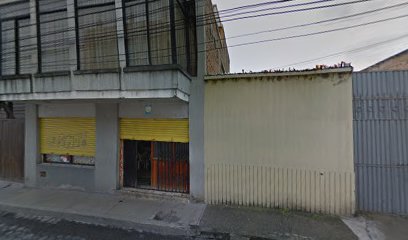
Wimpy
5.8 km
Discover Wimpy in Tulcán: where delicious meals meet warm hospitality in the heart of Ecuador.

CHILES CERVECERIA ARTESANAL
5.9 km
Discover the vibrant flavors of Ecuador at Chiles Cervecería Artesanal – your ultimate destination for craft beer and delicious cuisine in Tulcán.
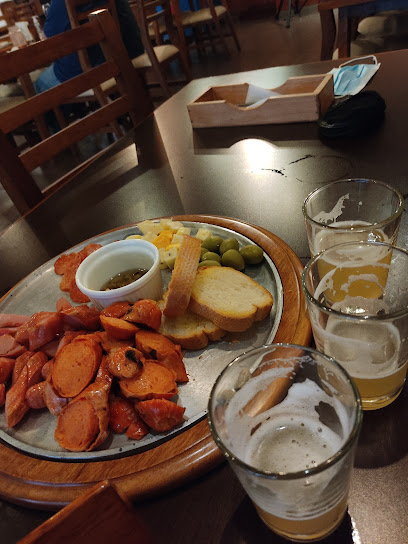
CAFE TULCAN
5.9 km
Discover Cafe Tulcan: A perfect blend of authentic Ecuadorian cuisine and exceptional espresso in the heart of Tulcán.
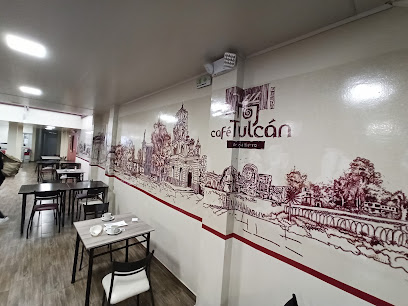
Restaurante Pack Choy
6.1 km
Experience authentic Chinese cuisine at Restaurante Pack Choy in Tulcán - A culinary journey awaits!
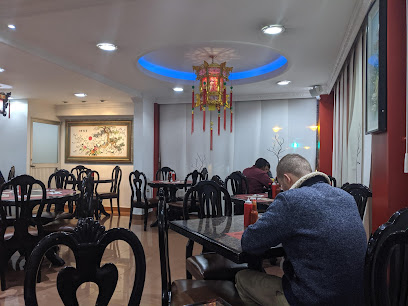
Markets, malls and hidden boutiques
Centro Comercial Popular
5.6 km
Experience the best of shopping and local culture at Centro Comercial Popular in Tulcán, Ecuador, where deals and delights await!
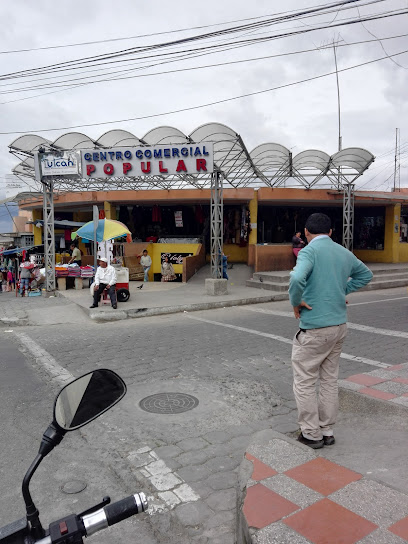
Hotel Espíndola en Tulcán
5.9 km
Discover the heart of Tulcán at Hotel Espíndola, where comfort meets local culture in a perfect blend for every traveler.
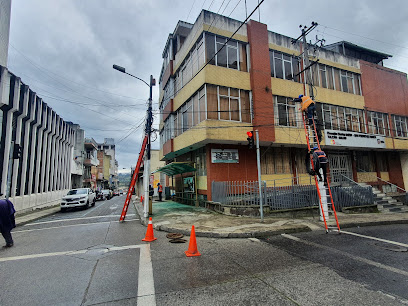
Richie Store Tulcán
6.1 km
Explore the vibrant culture of Tulcán at Richie Store, where authentic Ecuadorian crafts and souvenirs await every traveler.
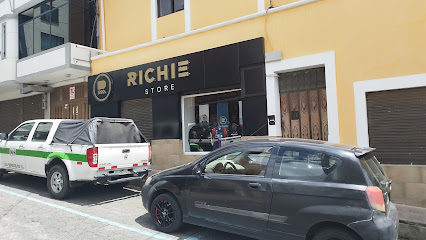
Hotel Torres de Oro
6.1 km
Experience comfort and warmth at Hotel Torres de Oro, your cozy retreat in the heart of Tulcán, Ecuador, perfect for exploring local culture and attractions.
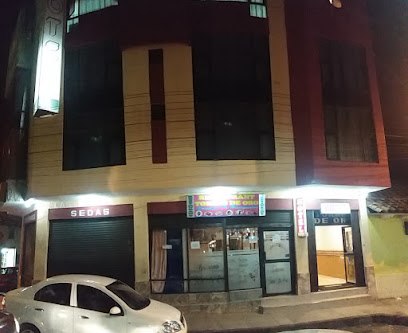
Comercial Criss
7.0 km
Discover the local flavors and vibrant atmosphere at Comercial Criss, Tulcán's go-to grocery store for tourists and locals alike.
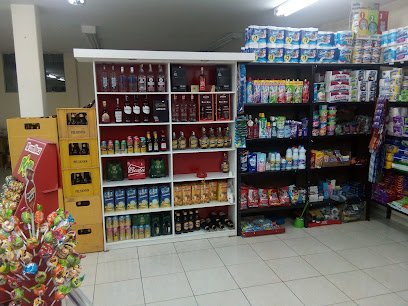
Contenidos
7.0 km
Discover authentic Native American crafts and cultural treasures at Contenidos, a unique shopping experience in Tulcán, Ecuador.

UNIQUE REGALOS Y DECORACIONES
7.8 km
Explore Unique Regaloss in Tulcán for an eclectic mix of gifts and decorations that embody Ecuador's rich culture and creativity.
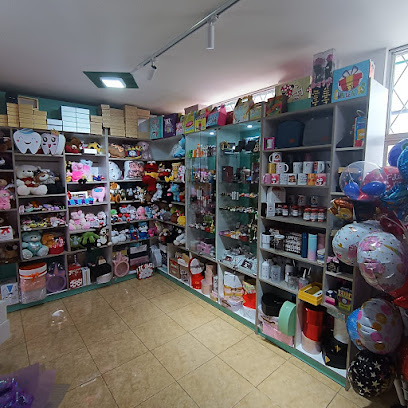
Tienda erick
9.2 km
Explore Tienda Erick in Tulcan: Your ultimate duty-free shopping destination for local crafts and international treasures.

Tienda
17.9 km
Explore Tienda: A vibrant shopping mall where local culture meets diverse shopping experiences, perfect for tourists seeking unique finds.

Identidad Park
22.6 km
Experience tranquility and local culture at Identidad Park, a serene green oasis in San Pedro de Huaca, perfect for relaxation and leisure.
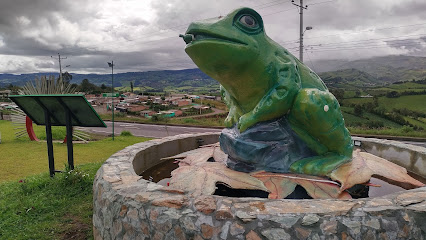
Bosque de los Arrayanes
32.1 km
Explore the breathtaking beauty of Bosque de los Arrayanes, a unique forest in Ecuador featuring stunning arrayán trees and rich biodiversity.

VariedadesShopColombia
59.7 km
Explore VariedadesShopColombia, where American flavors meet Colombian charm – a grocery haven for food enthusiasts and curious tourists alike.

Tienda la canastica
59.9 km
Discover the essence of Colombian craftsmanship at Tienda la Canastica, a unique home goods store in Pasto offering handmade treasures and local artistry.
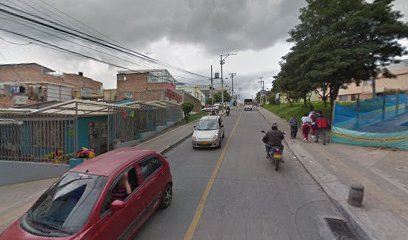
Tienda de regalos Sofia
60.3 km
Explore Tienda de Regalos Sofia: Your go-to gift shop in Pasto for unique Colombian souvenirs and handcrafted treasures.

TERRAPIEL
60.4 km
Explore Terrapiel in Pasto for unique, handcrafted fashion accessories reflecting the rich culture of Nariño, Colombia.
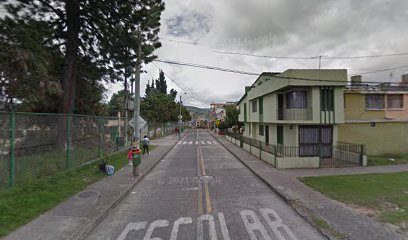
Essential bars & hidden hideouts
Mala influencia pub
1.7 km
Discover the lively Mala Influencia Pub in Ipiales, Colombia, featuring delicious grilled dishes and a vibrant atmosphere perfect for socializing.

Moon cocktail´s Ipiales
2.2 km
Discover the electric vibe of Moon Cocktail's in Ipiales, where disco, karaoke, and great drinks come together for a memorable night out.

JUGO'S BAR Y TROCYPAPAS
5.0 km
Discover the vibrant nightlife at Jugo's Bar y Trocypapas in Tulcán, where local flavors meet a lively atmosphere.

Santo Pecado Bar
5.2 km
Discover the vibrant nightlife of Tulcán at Santo Pecado Bar, a lively spot for great drinks and unforgettable experiences.

Bar Mad House
5.4 km
Discover the vibrant nightlife of Tulcán at Bar Mad House - a lively bar serving up fun, drinks, and local culture.
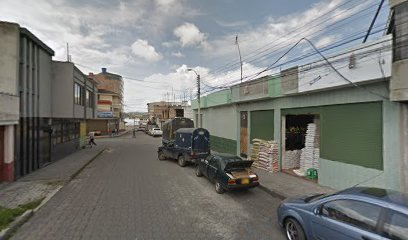
Los Hernández Taco-Bar
5.6 km
Explore the vibrant culinary scene at Los Hernández Taco-Bar, where authentic flavors and modern cuisine come together in the heart of Tulcán.
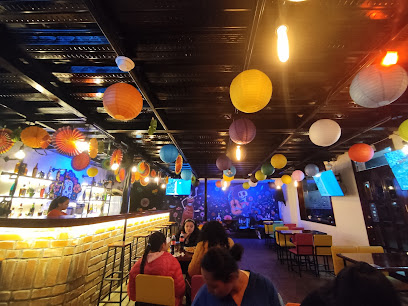
MEDITERRANEO
5.6 km
Explore the dynamic nightlife at Mediterraneo in Tulcán, a bar that captures the spirit of local culture with delicious drinks and vibrant atmosphere.
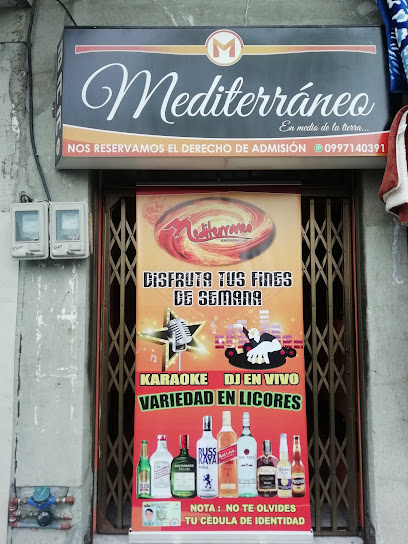
T-Kila Club
6.0 km
Discover the electrifying nightlife at T-Kila Club in Tulcán, where music and dancing create unforgettable memories.
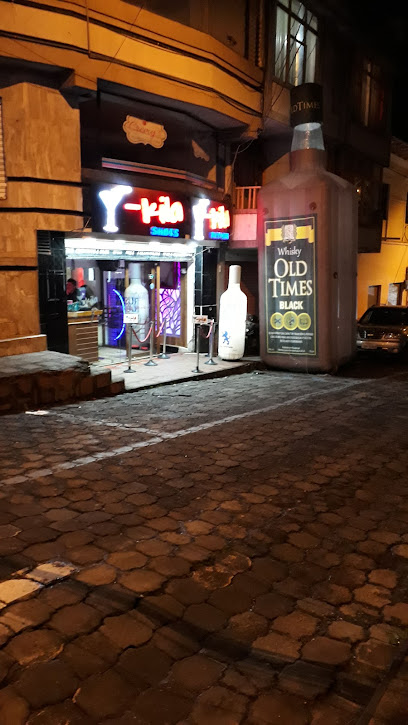
Coctiki Tulcán
6.0 km
Experience the vibrant nightlife at Coctiki Tulcán, a bar that blends local flavors with a lively atmosphere in the heart of Ecuador.
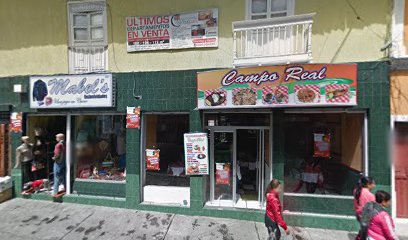
BarbudoTulcan
6.1 km
Discover BarbudoTulcan, a lively bar and gastropub in Tulcán, where local flavors and vibrant ambiance come together for an unforgettable experience.
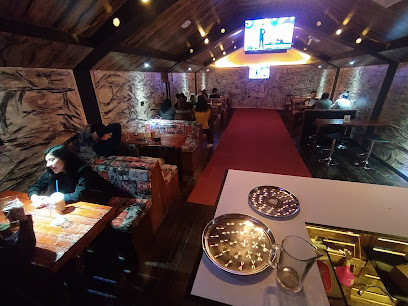
Casa 04
6.4 km
Discover Casa 04 in Tulcán, Ecuador: a cocktail bar where creativity meets flavor in a vibrant atmosphere perfect for all occasions.

Carchi TULCÁN
7.1 km
Experience the serene comfort and rich culture at Carchi Tulcán, your perfect hotel retreat in Tulcán, Ecuador.
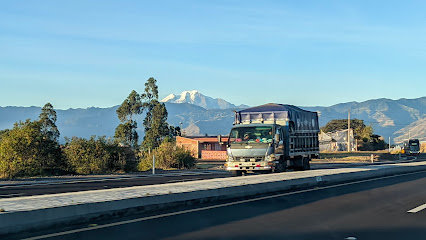
Texas Night Club
7.3 km
Discover the vibrant nightlife of Tulcan at Texas Night Club, where music, dancing, and unforgettable experiences await every night.

Casa de Alex Guacalés
7.3 km
Experience the pulse of Tulcán's nightlife at Casa de Alex Guacalés, where music and dance come alive in an unforgettable atmosphere.
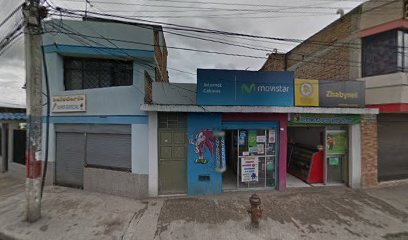
La Casa de Richard Carapaz
19.0 km
Experience Ecuadorian hospitality and authentic flavors at La Casa de Richard Carapaz, a family-friendly dining gem in Julio Andrade.
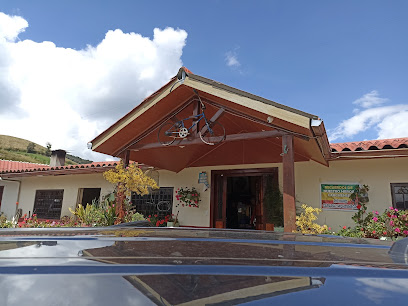
Nightclubs & after hour spots
Rute 66 Discotec
5.6 km
Experience the vibrant nightlife at Rute 66 Discotec, Tulcán's premier disco club for music, dancing, and local culture.
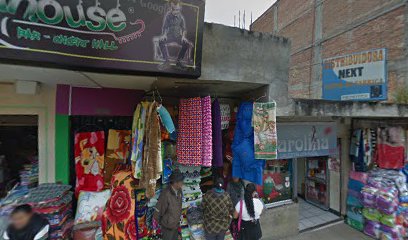
LA PARRANDA DISCO BAR
5.8 km
Discover the vibrant nightlife and karaoke fun at La Parranda Disco Bar in Tulcán, Ecuador's ultimate destination for music lovers.

MegaClub
5.9 km
Unleash your inner dancer at MegaClub, Tulcán's ultimate disco destination for an unforgettable nightlife experience.

Dance Discotek Club
6.1 km
Experience the pulse of Tulcán's nightlife at Dance Discotek Club, where vibrant music and dancing create unforgettable memories in an energetic atmosphere.
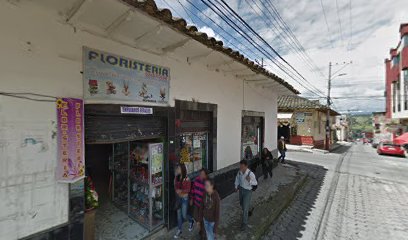
AMNESIA
6.1 km
Discover AMNESIA in Tulcán – A vibrant disco club offering unforgettable nights filled with music, dance, and local culture.
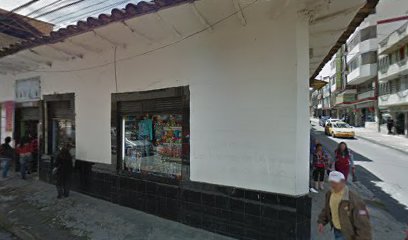
Royal Club
60.5 km
Discover the nightlife of Pasto at Royal Club, a vibrant night club offering pulsating music, dancing, and unforgettable moments in a lively atmosphere.

Club Cresemillas
60.6 km
Experience the vibrant nightlife of Pasto at Club Cresemillas, where music, dance, and unforgettable moments await you!

Club paraíso
60.6 km
Discover the lively spirit of Pasto at Club Paraíso, a vibrant girl bar offering unforgettable entertainment and social experiences.

Club natalias
60.6 km
Experience electrifying nights at Club Natalias, Pasto's premier night club, where vibrant music and an unforgettable atmosphere await.
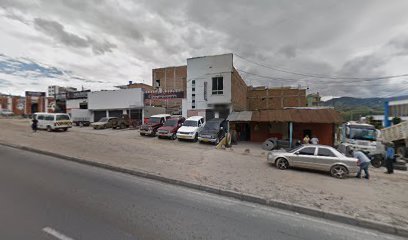
CLUB VENECIA BAR
61.4 km
Discover the electrifying atmosphere of Club Venecia Bar, Pasto's top disco club, where music and dance come alive in a vibrant nightlife experience.
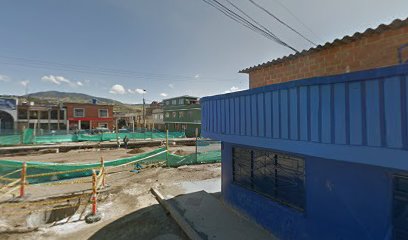
TOKIO CLUB
62.0 km
Immerse yourself in the lively nightlife of Pasto at Tokio Club, where great music and cocktails create an unforgettable experience.

Zouk Shots Club
62.0 km
Immerse yourself in the vibrant nightlife of Pasto at Zouk Shots Club, where music and energy collide for an unforgettable dance experience.

Rylax Club
62.1 km
Immerse yourself in the vibrant nightlife of Pasto at Rylax Club, where music, dancing, and unforgettable experiences await.

Clímax club
62.2 km
Discover the vibrant nightlife of Pasto at Clímax Club, where music, dance, and culture come together for an unforgettable experience.
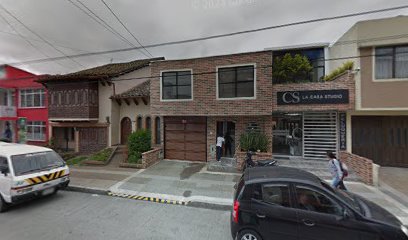
A Toda Madre Club
62.2 km
Discover the pulsating nightlife of A Toda Madre Club in Pasto, where music, dance, and unforgettable moments collide.
